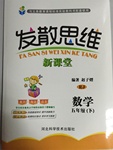
---I didn’t hear you come in just now.
--- That’s good. We tried ________ any noise, for you were sleeping.
A. not make B. not to make
C. to make D. Making
B
【解析】
试题分析:句意为:---我刚才没有听到你进来。---这就对了。因为你在睡觉,我们尽量不弄出响声。try to do sth是固定用法,表示“尽量做某事”,动词不定式用作宾语。“尽不做某事”应表达为:try not to do sth。结合选项可知应选B。
考点:考查动词不定式的用法。
考点分析: 考点1:动词和动词短语 就是表示动作和状态的词。根据其在句中的功能,动词可分为四类,分别是:实义动词、系动词、助动词、情态动词。 动词分类及用法 一、实义动词 实义动词又叫行为动词,分成及物动词和不及物动词 。 1、及物动词是必须带宾语的动词,可分为如下两类。 1) 及物动词+宾语例:I love my home. 我爱我家。 He bought an English dictionary. 他买了一本英语词典。 2) 及物动词+间接宾语+直接宾语例:She taught us maths. 她教我们数学。 My mother gave me a new pen. 母亲给了我一支新钢笔。提示:常用的能接双宾语的及物动词有:give, teach, buy, lend, find, hand, leave, sell, show, read, pay, make, offer, build, pass, bring, cook等。 2、 不及物动词不及物动词不需要跟宾语,本身意义完整。例:She came last week. 她上周来的。 It is raining hard. 正下着大雨。 Class began at half past seven. 7点半开始上课。 What happened yesterday? 昨天发生了什么事? 3、同一动词有时可用作及物动词,有时可用作不及物动词。例如:She can dance and sing. 她能唱歌又能跳舞。(sing在此用作不及物动词。) She can sing many English songs. 她能唱好多首英文歌曲。(sing用作及物动词。) 二、系动词 系动词不能单独作谓语,后面必须跟表语构成合成式谓语。表语通常由名词、形容词,或相当于名词或形容词的词或短语等充当,说明主语是什么或怎么样。连系动词有 be, seem, look, become, get, grow, feel, appear, remain, turn。 例如: The story sounds true. Those oranges taste good. 三、助动词 协助主要动词构成谓语动词词组的词叫助动词。 助动词自身没有词义,不可单独使用,只能在实义动词和系动词前构成谓语的时态、语态以及否定式和疑问式。它没有对应的汉译,例如: He doesn't like English. 他不喜欢英语。 (doesn't是助动词,无词义;like是主要动词,有词义) He is singing. 他在唱歌。(is是助动词,无词义,构成现在进行时) 四、情态动词 情态动词是一种本身有一定的词义,表示说话人对有关行为或事物的态度和看法,认为其可能、应该或必要等,不能单独作谓语,情态动词后面加动词原形。情态动词无人称和数的变化, 情态动词后面跟的动词需用原形,否定式构成是在情态动词后面加 "not"。常用的情态动词有 : Can(could) (能,会) 如:I can swim. 我会游泳。 May(might) (可以) 如: You may go now. 你现在可以走了。 Must (必须) 如:You must do your homework. 你必须写作业。 Need (需要) 如:He needs our help. 他需要我们的帮助。 注意:1、情态动词表推测在肯定句中一般用must (一定),can, could(可能),might /may(也许,或许)。否定句中用can’t / couldn’t(不可能)。例如: It can’t be the headmaster. He has gone to America. 这不可能是校长,他去美国了。 2、can和could表示允许的用法:表示现在的允许时,若是请求别人允许自己做某事,两者均可用,但用could 语气更委婉;若是自己允许别人做某事,一般只用 can,而不用 could。如: Can [Could] I come in? 我可以进来吗? 3、must和have to的用法 表示必须、必要。(must表示主观多一些而have to则表示客观多一些)如: You must come in time. 你必须及时过来。 回答must引出的问句时,如果是否定的回答,不能用mustn't,而要用needn't或don't have to。 — Must we hand in our exercise books today? — Yes, you must. (No, you don’t have to.) —我们今天必须交上练习册吗? —是的。(不,不必。) 4、need表示“需要”或“必须”,作情态动词时,仅用于否定句或疑问句中,后跟动词原形。Need还常用作实义动词,有时态、人称和数的变化,后面通常接名词、代词和带to的不定式, Do you need a dictionary? 你需要词典吗? You needn't give it back before Friday. 你不必在星期五前还我。 常见考法 对于动词的考查,通常会在单选,词语运用和完形填空中出现。除了考查时态和语态外,只要考查实义动词的固定短语,系动词和情态动词的灵活运用。 典型例题:--Must I return the magazine to you right now,Sandy/ --No,you .you may keep it until next Wednesday. A. needn't B. can't C. must D. may 解析:本题考查情态动词must构成的疑问句的回答方式。否定回答应该用 needn't 。 答案:A 误区提醒 汉语和英语的动词有较大差异,而学习者在学习是往往容易套用汉语,从而混淆意思相近而用法不同的词或词组,也容易混淆词形相近而意思不同的词或词组,例如look for和find, listen和 hear。所以我们在学习中要认真分析不同的词或词组。 典型例题:They had to ___the 800--meter race because of the bad weather. A put on B put off C get on D get up 解析:本题考查四个动词短语的区别。put on “穿上,戴上”; put off“推迟”; get on “上车”; get up“起床”。根据语境,应选put off。 答案:B 试题属性

 全能测控一本好卷系列答案
全能测控一本好卷系列答案 发散思维新课堂系列答案
发散思维新课堂系列答案科目:初中英语 来源:2014-2015学年甘肃敦煌郭家堡中学八年级上期末英语试卷(解析版) 题型:单项填空
Remember to ____the lights after school.
A.turn on B.turn up
C.turn down D.turn off
查看答案和解析>>
科目:初中英语 来源:2014-2015学年云南玉溪红塔区第一学区九年级上期末英语试卷(解析版) 题型:单项填空
The ________ you learn, the ________ you want to learn.
A. more; much B. more; more
C. much; more D.much; much
查看答案和解析>>
科目:初中英语 来源:2014-2015学年山东潍坊市两校联考九年级中考一模英语试卷(解析版) 题型:翻译
翻译句子(共4小题;每小题2分,满分8分)
1.如果你想保持身体健康的话,不要放弃跑步。(give up)
_____________________________________________________________________.
2.我父母认为我应该花更多的时间在我的功课上。(spend)
______________________________________________________________________.
3.我主动要求帮助杰克学习数学。(offer to )
________________________________________________________________.
4.这部电影不如那部电影有趣。(as…as)
_______________________________________________________________.
查看答案和解析>>
科目:初中英语 来源:2014-2015学年山东潍坊市两校联考九年级中考一模英语试卷(解析版) 题型:完形填空
Farley worked for the Canadian government. One day, he was ____ to learn more about wolves. Do wolves kill lots of caribou(北美驯鹿)? Do they kill people?
They gave him lots of food and clothes and guns. Then they put him on a plane and took him to ____. The plane put him down and went away. There were no houses or people in this place. But there were lots of animals and lots of wolves.
People tell terrible stories about wolves. They say wolves like to kill and eat people. Farley remembered these stories, and he was _____. He had his gun with him______.
Then one day, he saw a group of wolves. There was a mother wolf with four baby wolves. A father wolf and another young wolf lived with them. Farley watched these wolves every day. The mother was a very ____ mother. She gave milk to her babies. She gave them lessons about life. They learned how to ____ food. The father wolf got food for the mother. The young wolf ____ the children. They were a nice, happy family—wolf family! Farley did not need his ____ any more. In a short time, he got on well with the family. Farley watched them for five months. He learned that many stories about the wolves were ____. Wolves do not eat people, and they do not eat many large animals. And he also learned bad things about men. It was men who killed many caribou and wolves.
Later, Farley wrote a book about wolves. He wanted people to ____ them and not to kill them.
1.A. seen B. told C. heard D. found
2.A. a small town B. a big city C. a far place D. a lonely village
3.A. afraid B. happy C. angry D. tired
4.A. at times B. all the time C. once a week D. every afternoon
5.A. bad B. good C. hungry D. thirsty
6.A. cook B. make C. get D. pick
7.A. shouted at B. looked into C. laughed at D. played with
8.A. food B. clothes C. gun D. plane
9.A. not good B. not true C. not easy D. not clear
10.A. grow B. have C. teach D. understand
查看答案和解析>>
科目:初中英语 来源:2014-2015学年山东潍坊市两校联考九年级中考一模英语试卷(解析版) 题型:单项填空
---Mrs. Smith has ______ eight-year-old daughter who has won two national painting prizes.
---Do you mean _______ unusual girl in a blue skirt?
A. an; an B. an; the
C. the; the D. the; a
查看答案和解析>>
科目:初中英语 来源:2014-2015学年江苏无锡玉祁初级中学八年级3月月考英语试卷(解析版) 题型:阅读理解
Have you ever heard of the saying, “If you want a friend, be one.”? What does it mean?
There are many different things that you can do to make friends. You may find out what they are if you watch someone make friends.
Here is how one new teacher made friends with the students in her class on the first day of the school. When the bell rang, the teacher smiled at all the students. Then she said, “ Good morning! How nice it is to have all of you in my class this year! I want to know each of you very much. I am sure we will enjoy working together.”
The teacher smiled, used a pleasant voice, and acted in a friendly way. She told the students her name and wrote it on the blackboard. Then she told them something she liked to do and hoped to do with them during the year. The students knew that she liked many of the same things they liked. Everyone felt that she meant what she said. Each of them wanted to know her better and be her friends. Then she let the students tell something about themselves. So they felt that the teacher knew them. Could you make friends as the teacher did?
How do you know and like your classmates? One way is to find out more about them. During the break you can talk to them. You may ask them their names and the names of the schools they went to last year. They want to know about you, too. You may tell them about your interests or your holiday experiences. It is often easy to be friends with people who have the same interests and play the same games. As you talk, the others may be thinking, “ I like to do the same things you do. It should be fun to be friends with you.”
Remember! Just talking together in a friendly way is one good way to make friends.
1.The saying “ If you want a friend, be one.” means “____________”.
A. if you want to make friends with others, you should be one of them
B. you can make friends by doing the things that a friend does
C. you can easily make friends with one of the others
D. you can make one good friend, if you want to
2.How did the teacher get the students to feel that she would be a good friend?
A. She laughed at each other and told them many things she knew.
B. She told the students many things she likes to do.
C. She laughed and made the students only know her well in a friendly way.
D. She talked and acted in a friendly way to let the students know she really wanted to be friends with them.
3.The underlined sentence in Paragraph 4 means “ ________________”.
A. every student in her class felt that she really liked them
B. everyone in her class understood what the teacher said
C. all the students thought it was unnecessary to tell them these things
D. everyone felt tired when they heard what the teacher said
4.Which do you think is the best title(标题) for this passage?
A. With the Teacher in Class
B. How to Talk to Others
C. Talking with students
D. Making friends
查看答案和解析>>
科目:初中英语 来源:2014-2015学年江苏无锡玉祁初级中学八年级3月月考英语试卷(解析版) 题型:单项填空
-- ___________, when will you go to Wuxi David?
--Next Sunday.
A. By the way B. In a way
C. On the way D. For the way
查看答案和解析>>
科目:初中英语 来源: 题型:
根据对话内容,补全对话。
A: Hi, Peter! Do you know there is a show in Beijing National Art Gallery?
B: 1 But I don’t know what it is about.
A: It’s about Chinese history and culture.
B: Great! 2 I think I can learn a lot there.
A: Would you like to go with me?
B: 3 But I don’t have enough money to buy a ticket.
A: 4 I have two tickets, and I can give one to you.
B: Thank you. 5
A: You’re welcome. Let’s go.
1_____________________
2_____________________
3_____________________
4_____________________
5_____________________
查看答案和解析>>
湖北省互联网违法和不良信息举报平台 | 网上有害信息举报专区 | 电信诈骗举报专区 | 涉历史虚无主义有害信息举报专区 | 涉企侵权举报专区
违法和不良信息举报电话:027-86699610 举报邮箱:58377363@163.com